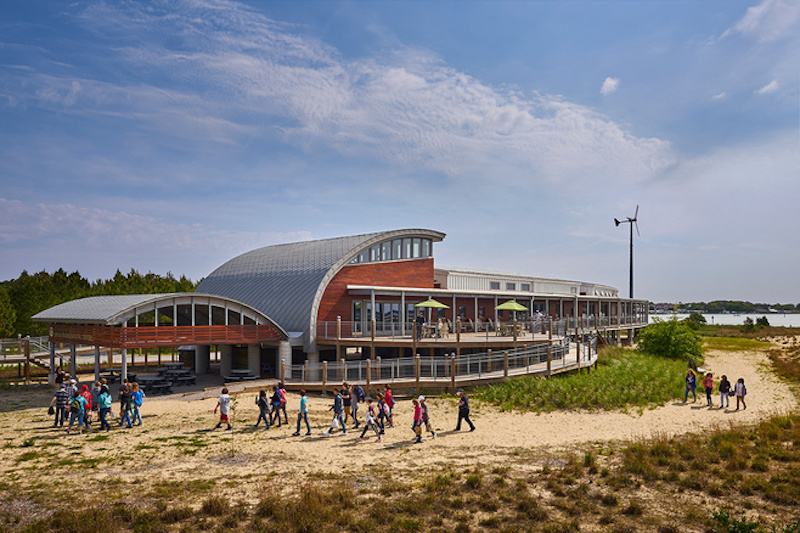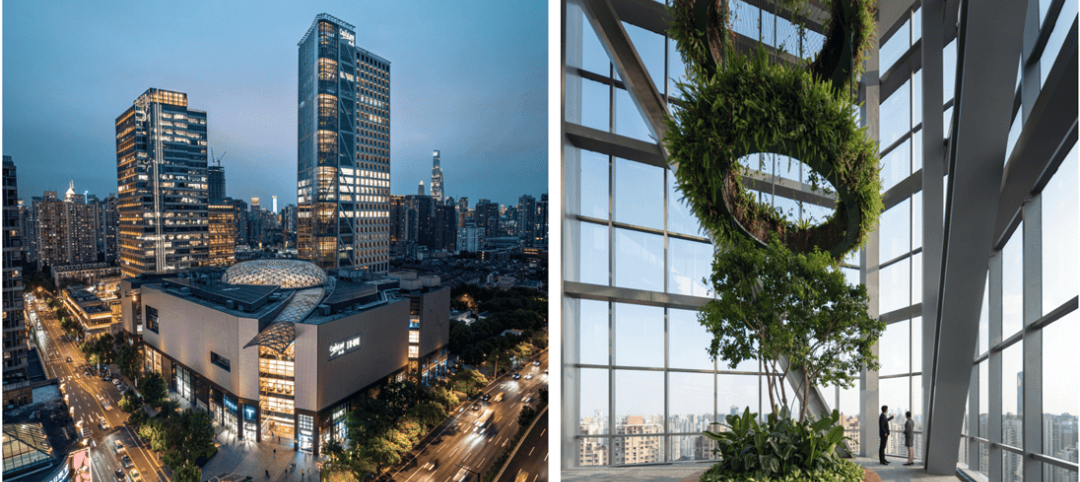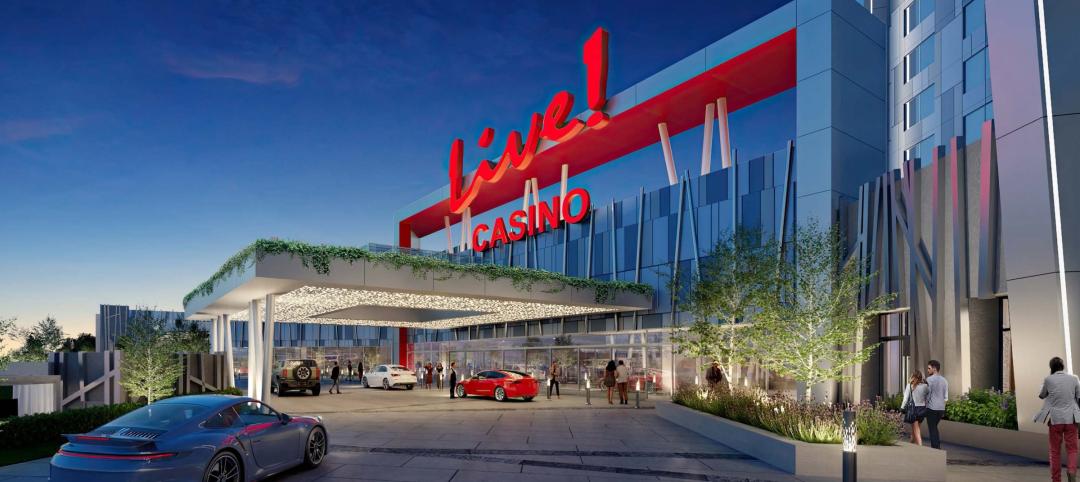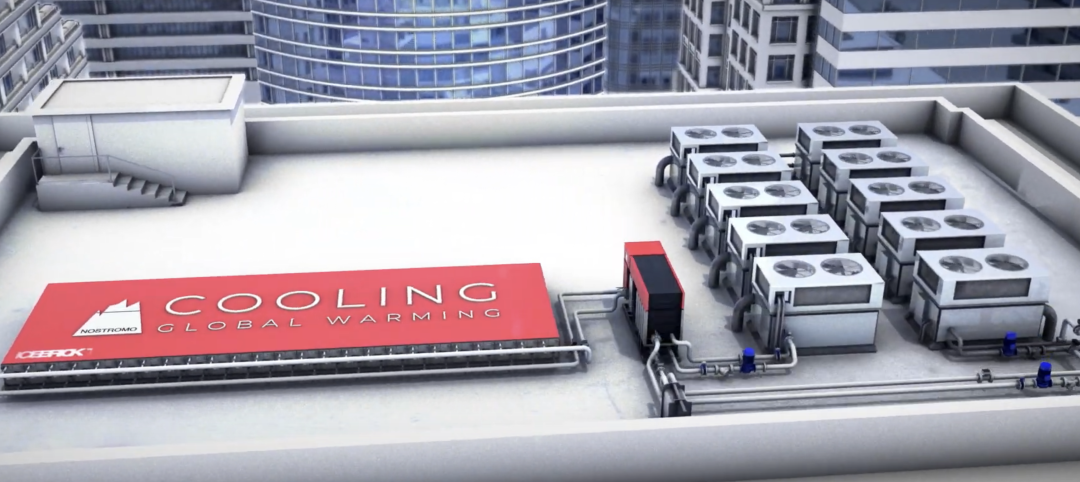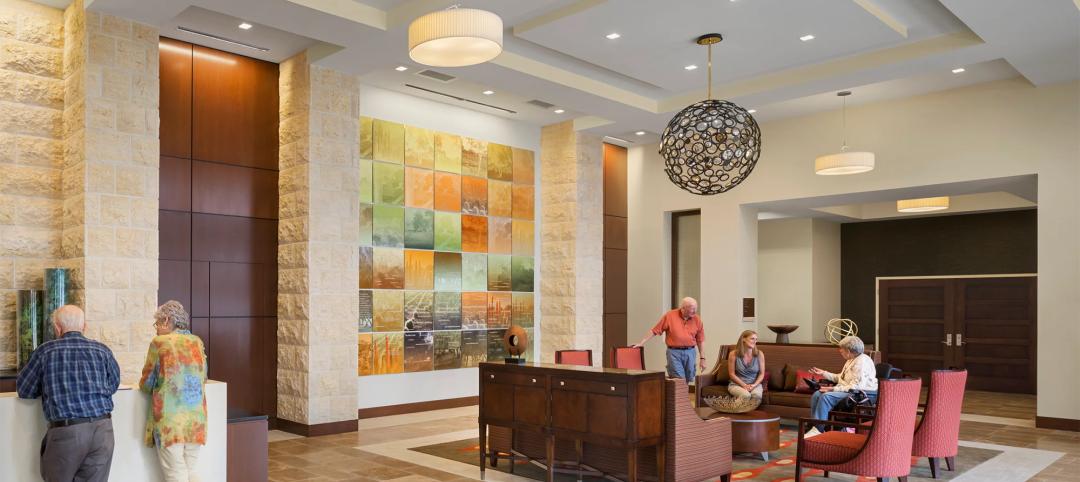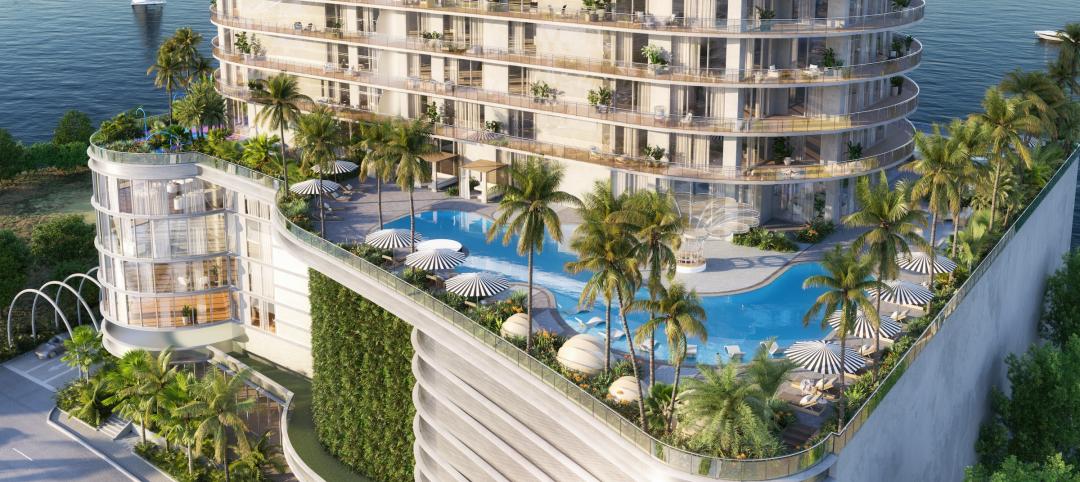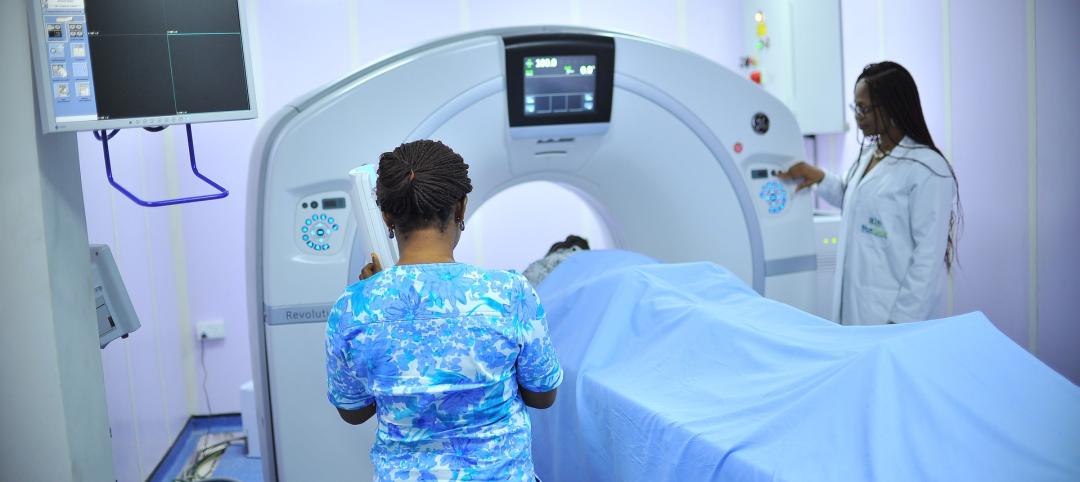The easiest and most cost-effective strategies in sustainable design—daylighting, optimal building orientation, a tight envelope, super-efficient HVAC systems, LED lighting—are taken for granted today. AEC leaders in green building are stepping up to a higher level of innovation.
TOP 130 GREEN BUILDING ARCHITECTURE FIRMS
Rank, Firm, 2015 Revenue
1. Gensler $768,470,000
2. Stantec $331,794,291
3. HOK $280,570,000
4. Perkins+Will $195,460,000
5. Skidmore, Owings & Merrill $175,140,374
6. HKS $163,696,602
7. EYP $137,479,466
8. SmithGroupJJR $122,636,361
9. CallisonRTKL $104,462,061
10. CannonDesign $69,400,000
TOP 90 GREEN BUILDING CONSTRUCTION FIRMS
Rank, Firm, 2015 Revenue
1. Turner Construction Co. $5,701,000,000
2. Clark Group $2,620,000,000
3. Hensel Phelps $2,286,280,000
4. Skanska USA $1,941,400,000
5. Swinerton Inc. $1,918,000,000
6. Gilbane Building Co. $1,746,261,000
7. Whiting-Turner Contracting Co., The $1,600,777,900
8. Suffolk Construction Co. $1,514,705,316
9. Structure Tone $1,460,800,000
10. Holder Construction Co. $1,335,000,000
TOP 60 GREEN BUILDING ENGINEERING FIRMS
Rank, Firm, 2015 Revenue
1. Jacobs $203,161,333
2. AECOM $200,900,000
3. Arup $168,783,060
4. Thornton Tomasetti $67,382,221
5. Syska Hennessy Group $32,420,857
6. Burns & McDonnell $24,341,832
7. Vanderweil Engineers $23,508,800
8. Smith Seckman Reid $20,189,000
9. DeSimone Consulting Engineers $19,799,641
10. Dewberry $19,159,460
GREEN GIANTS SPONSORED BY:
Some have created tools that aid designers’ ability to more precisely compare the projected energy performance of various design concepts, materials, and equipment choices. Designers can kick the tires on an array of options early in the design process.
Occupant wellness and comfort have also gained increasing prominence, especially since the signing of a partnership between the International WELL Building Institute and the U.S. Green Building Council in 2014. “If it doesn’t enhance the wellness of occupants, it’s not really sustainable,” says Mike Szabo, OAA, AIBC, Principal, Diamond Schmitt Architects.
To be a green leader today, you have to dig deeper into data. For Diamond Schmitt, existing energy models only go so far. “We have a diverse portfolio, and we don’t do prescriptive design,” Szabo says. To improve the quality of data for its project types, the firm, in collaboration with the engineering firm RWDI, developed a visual database with energy simulation models. The models take energy-load information from the firm’s portfolio and extrapolate predictive data that is used in the early stages of design.
“There are a series of filters—location, heating, process loads, etc.—so you can drill down beyond a single measure of energy usage per square meter,” Szabo says. “This allows us to ask the right questions about the core issues that make projects perform more efficiently.”
On a recent master-planning project for a mixed-use development, the tool helped the firm and the client choose from among three possible site configurations to find the best orientation for energy efficiency.
ZGF Architects has also found existing databases, such as Energy Star, lacking. The firm specializes in the design of hospitals, laboratories, and research facilities, all of which have higher-than-average energy loads. “The actual performance of these buildings is driven largely by the program,” says Associate Partner Vikram Sami, AIA, BEMP, LEED BD+C.
Using publicly available data from the Department of Energy, ASHRAE, and its own projects, ZGF developed an energy-load database for such project types. The data is stored on Microsoft Excel and maps to Revit. Designers filter the data according to the program of individual spaces—climate, equipment loads, and other factors—to get fairly reliable answers to what-if questions about energy demand and savings. ZGF’s Energy Programming Dashboard helps its designers obtain energy load information on individual pieces of equipment—pumps, heating units, lighting fixtures—which can then be combined to create the optimal aggregation of equipment.
on the wellness front
ZGF has teamed up with researchers at the University of Washington on Lark Spectral Lighting. The tool allows designers to use spectral data to define how the quality of light impacts not only a physical space, but also the occupants. The color and quality of light affect humans’ circadian rhythms, sleeping patterns, and alertness, which can impact employee productivity.
“The spectral content of light sources changes as the light bounces off of surfaces,” says ZGF Associate Ed Clark, LEED AP BD+C. The choice of materials and color schemes for ceilings, walls, floors, and furniture influences the quality of light. Darker colors absorb light; lighter colors are more reflective. The Lark tool (free download at: www.food4rhino.com/project/lark) provides a model that helps designers configure optimal combinations of lights and interior materials.
How architectural features impact wellness is an ever-growing competitive consideration for AEC firms that design and construct new office space. KSS Architects encountered this in its work for Burlington Stores.
The off-price retailer wanted its new headquarters in New Jersey to appeal to Millennials. KSS’s design encourages workers to get out of their chairs and move about the facility during the day. A large café has extensive indirect daylighting, bright colorscapes, and long, European-style tables. The space is busy throughout the workday, not just at mealtimes, notes Ed Klimek, AIA, NCARB, Partner, KSS Architects.
Small nooks outfitted with furniture are spread throughout the building. Outdoor seating is arranged on the north side of the structure. These features are tailored especially for the young professionals accustomed to working untethered from their desks. “The design was a response to an emerging generation of people with new expectations of what a workplace should be,” Klimek says.
Elevators are pushed to the side of a large, sweeping staircase to encourage employees to take the stairs. Spaces that foster physical activity—and add variability to workspaces, seating postures, and scenery—are believed to promote a healthier style of work.
The project included many LEED-blessed approaches, but the owner chose not to apply for certification. “It’s less about getting the plaque and more about how design can have a direct impact on sustainability, wellness, and saving money,” Klimek says. “It’s about looking for unique ways your project can address sustainability, not because they are cool, but because they matter.”
RETURN TO THE GIANTS 300 LANDING PAGE
Related Stories
Adaptive Reuse | Jul 30, 2024
Empty mall to be converted to UCLA Research Park
UCLA recently acquired a former mall that it will convert into the UCLA Research Park that will house the California Institute for Immunology and Immunotherapy at UCLA and the UCLA Center for Quantum Science and Engineering, as well as programs across other disciplines. The 700,000-sf property, formerly the Westside Pavilion shopping mall, is two miles from the university’s main Westwood campus. Google, which previously leased part of the property, helped enable and support UCLA’s acquisition.
Geothermal Technology | Jul 29, 2024
Rochester, Minn., plans extensive geothermal network
The city of Rochester, Minn., home of the famed Mayo Clinic, is going big on geothermal networks. The city is constructing Thermal Energy Networks (TENs) that consist of ambient pipe loops connecting multiple buildings and delivering thermal heating and cooling energy via water-source heat pumps.
High-rise Construction | Jul 29, 2024
Safdie Architects’ Shanghai office tower features glass-enclosed corner garden that ascends the 35-story structure
Safdie Architects has announced the completion of LuOne Mixed-Use Complex—a business, retail, and entertainment development in the Luwan district of Shanghai, China. The mixed-use complex consists of an eight-level retail galleria, which opened in 2018, and a 35-story office tower, which recently reached completion.
Casinos | Jul 26, 2024
New luxury resort casino will be regional draw for Shreveport, Louisiana area
Live! Casino & Hotel Louisiana, the first land-based casino in the Shreveport-Bossier market, recently topped off. The $270+ project will serve as a regional destination for world-class gaming, dining, entertainment, and hotel amenities.
Smart Buildings | Jul 25, 2024
A Swiss startup devises an intelligent photovoltaic façade that tracks and moves with the sun
Zurich Soft Robotics says Solskin can reduce building energy consumption by up to 80% while producing up to 40% more electricity than comparable façade systems.
Codes and Standards | Jul 25, 2024
GSA and DOE select technologies to evaluate for commercial building decarbonization
The General Services Administration and the U.S. Department of Energy have selected 17 innovative building technologies to evaluate in real-world settings throughout GSA’s real estate portfolio.
Great Solutions | Jul 23, 2024
41 Great Solutions for architects, engineers, and contractors
AI ChatBots, ambient computing, floating MRIs, low-carbon cement, sunshine on demand, next-generation top-down construction. These and 35 other innovations make up our 2024 Great Solutions Report, which highlights fresh ideas and innovations from leading architecture, engineering, and construction firms.
Senior Living Design | Jul 23, 2024
The growing importance of cultural representation in senior living communities
Perkins Eastman architect Mwanzaa Brown reflects on the ties between architecture, interior design, and the history and heritage of a senior living community’s population.
MFPRO+ News | Jul 22, 2024
Miami luxury condominium tower will have more than 50,000 sf of amenities
Continuum Club & Residences, a new 32-story luxury condominium tower in the coveted North Bay Village of Miami will feature more than 50,000 sf of indoor and outdoor amenities. The program includes a waterfront restaurant, dining terraces with resident privileges, and a private dining room outdoor pavilion.
Healthcare Facilities | Jul 22, 2024
5 healthcare building sector trends for 2024-2025
Interactive patient care systems and trauma-informed design are among two emerging trends in the U.S. healthcare building sector, according to BD+C's 2024 Healthcare Annual Report (free download; short registration required).


